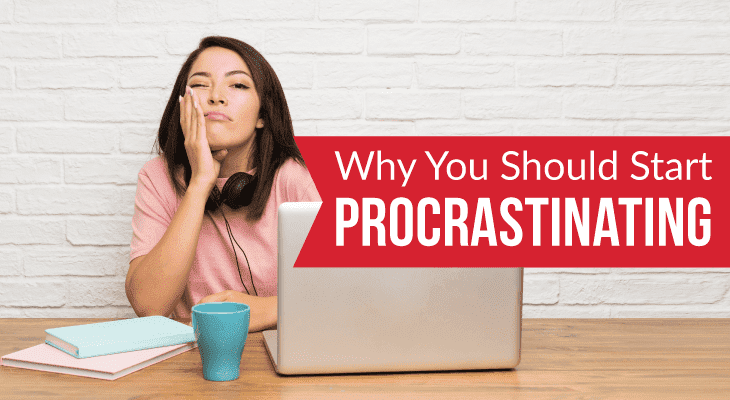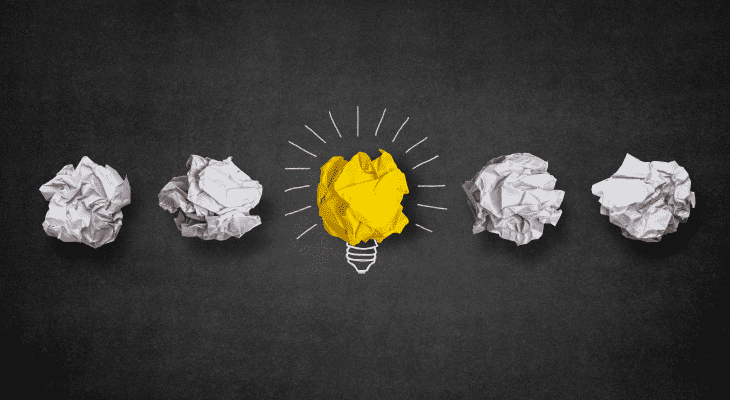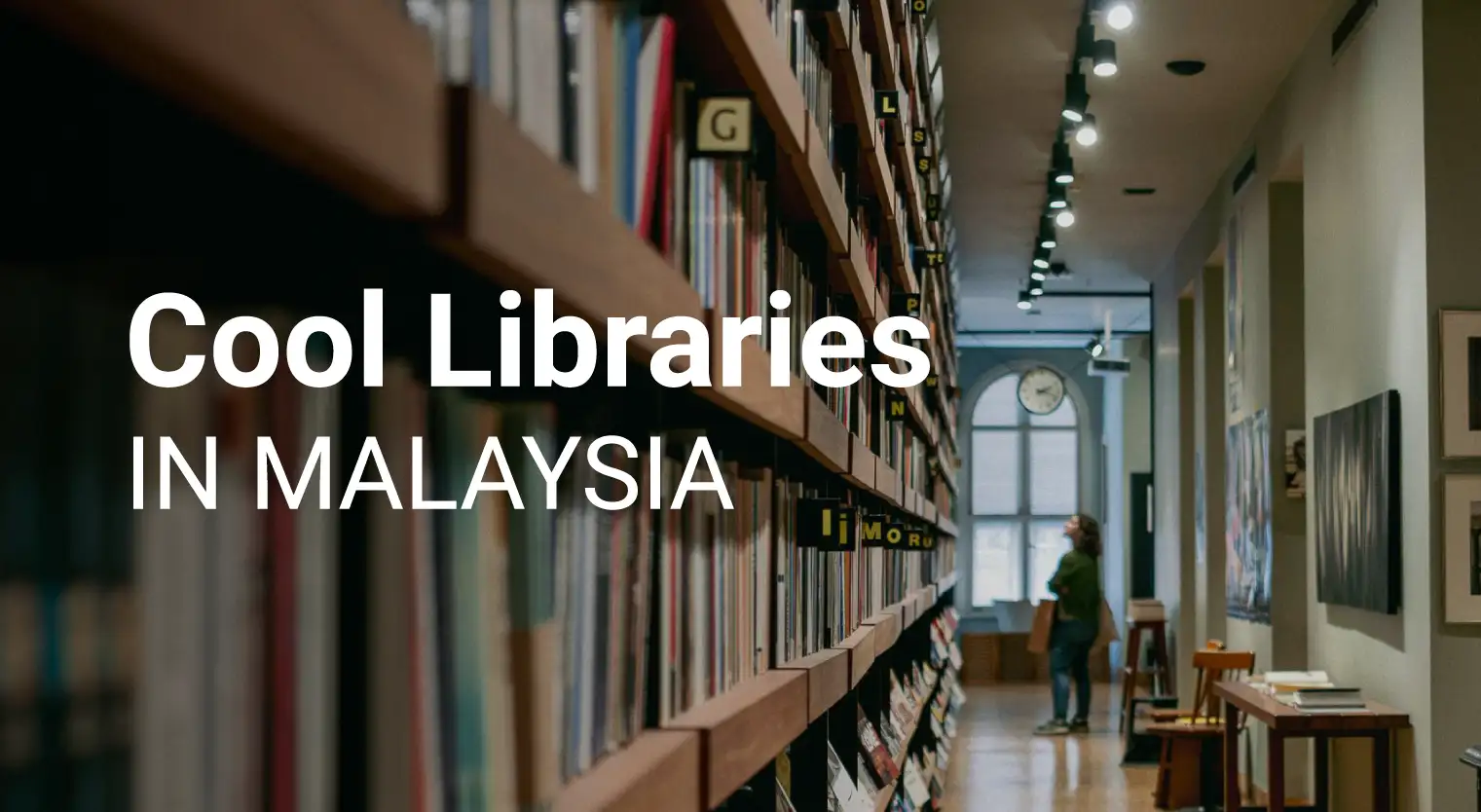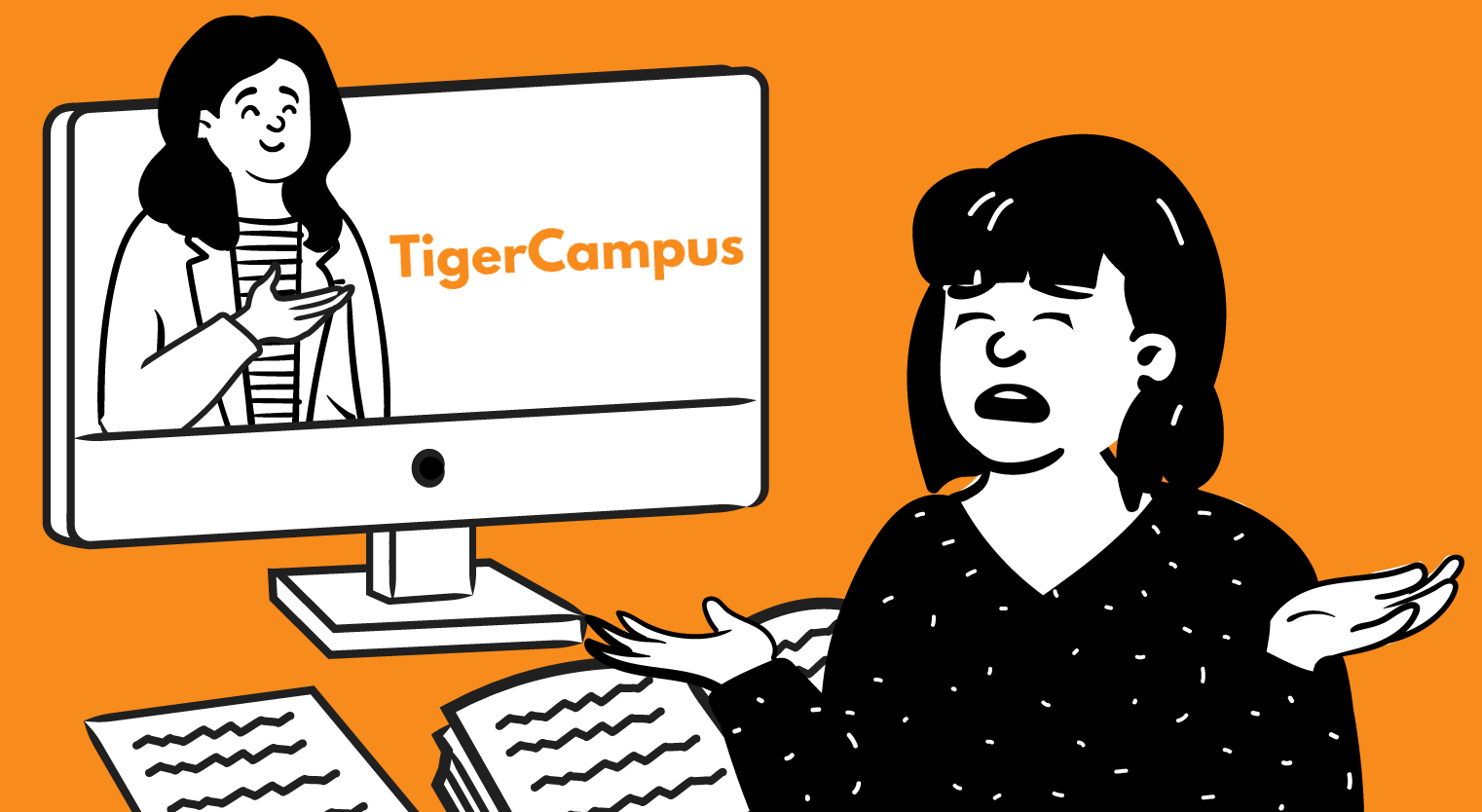7 Reasons Why You Should Start Procrastinating
You’ve read that procrastination is bad. But here are 7 reasons why procrastination can actually be good for you.
Updated 01 Aug 2019

You’re probably quite familiar with all the negative effects of procrastination. However, up to a certain limit, procrastination can also turn out to be a helpful trait.
Curious to know how? Keep scrolling!
#1. Prevents you from a burnout

Say you’ve had a pretty long week filled with extra classes and projects. You’re completely bummed out but you remember you still have to complete your bajillion essays and reports. What do you do? You should procrastinate, a.k.a. take a break of course!
Although having a certain level of stress can be good, over inducing yourself with work can lead to a burnout and may affect your studies, social life and mental health in the long run. So, take your well-deserved break and procrastinate for a bit before you continue to seize the day!
#2. Your idea is likely 28% more creative

The first few ideas you think of are usually the most conventional and least creative. This was discovered through an experiment conducted by a professor at the University of Wisconsin. In the experiment, participants were asked to create new ideas for a business with some of them assigned to begin immediately while others were told to play computer games first.
In the end, independent evaluators rated the ideas of those who procrastinated as 28% more creative. It was explained that by putting off the task, participants had more time to consider better thoughts and adopt divergent thinking. So, the next time you have to write a creative essay, go ahead and play some games first (for a short while of course)!
#3. You get more things done

Have you ever tried sitting at your desk to do your homework but found the work too difficult so you end up doing other things instead (e.g. doing your laundry or tidying up your room)?
This is called active procrastination, where you do something productive instead of nothing at all. This form of procrastination may not help you solve the more complex work you’re supposed to complete, however, it’ll help you tackle the smaller things on your to-do list and still make you feel productive. This sense of accomplishment may just be the motivation you need to tackle your difficult task later on!

#4. Eliminate unimportant tasks

Have you ever postponed doing something for so long, you wondered why it was on your to-do list in the first place? Well, by procrastinating, you’re also giving yourself time to reconsider the importance of a task.
Sometimes, you may end up realising you don’t need to do the task anymore, which probably just means that it was not that important to you, to begin with. So, instead of spending precious time doing something unnecessary, you can now use the extra time to complete a different task (genius!).
PS: This does not mean that you should deem your chores unimportant and leave the dishes in the sink for others to wash!
Apply for university with EduAdvisor
Secure scholarships and more when you apply to any of our 100+ partner universities.
Start now#5. Helps with stress management

Research published in The Journal of Social Psychology by Angela Hsin Chun Chu and Jin Nam Choi in 2005 also identifies 2 types of procrastinators; passive and active. Passive procrastinators are unable to complete a task on time due to their fear of failure or ability to make decisions. This will eventually bring them stress when they’re rushing to complete their assignment or task at the last minute.
Active procrastinators (as mentioned in point #3) on the other hand, have control of their time but prefer to work last minute because pressure motivates them to complete the difficult task. As an active procrastinator, you deal with the stress of completing a difficult task by using task-oriented coping mechanisms (e.g. doing other productive things first such as research). This way, you also spend the least amount of time possible working on the stressful task.
#6. You’re more focused on your task

It’s the night before you have to sit for your exam. You’re all stressed and anxious. You know you’ve slacked all day and can’t afford to waste any more time. You’ve got a few more chapters to cover, so you lock yourself in your room, silent your phone and get all your study materials out.
Now that there’s no more Instagram or Twitter to distract you, you’re in the zone and soon find yourself being able to focus more. This motivating pressure helps you power through all your readings within a short amount of time.

#7. Enhances your ability to recall information

In an experiment conducted by psychologist Bluma Zeigarnik, it was found that you’re likely to have a better memory of an incomplete task compared to a completed one. Dubbed as the Zeigarnik effect, Bluma concluded that if a task is left incomplete over some time, you’ll be able to remember the information better. This suggests that your will to finish something will help you remember it until you’ve completed the task.
How can you put this to good use? This method can come in handy especially if you have to come up with a new idea for your group project or when you’re trying to solve a complex problem, with no tight deadline.
Now that you’ve realised the positive effects of procrastination, be sure to put your new-found insights to good use. And remember, moderation is key!






